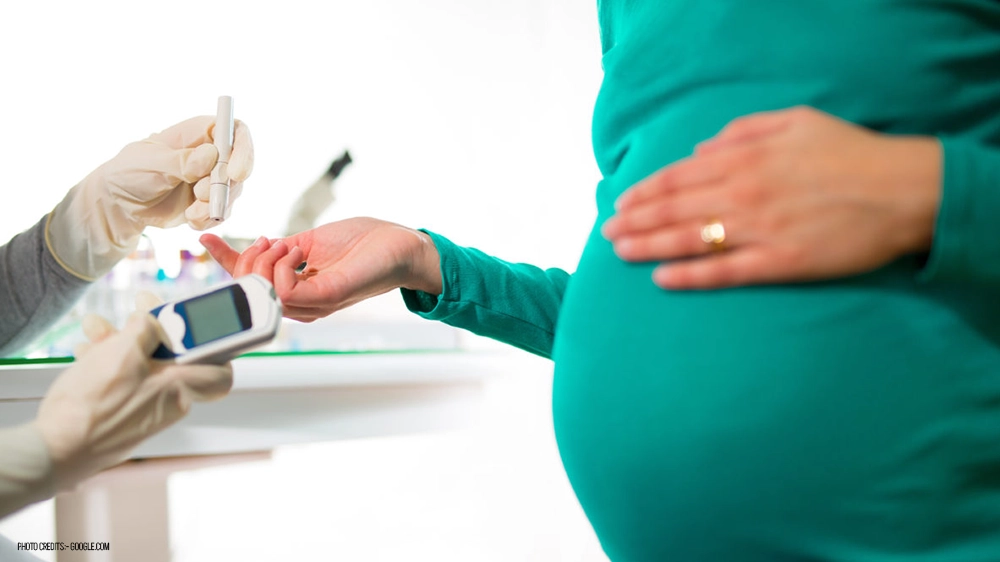
HEALTH BLOG
1 Hour Glucose Tolerance Test in Pregnancy: What’s the Normal Range?
-
Rahul Priydarss
The 1-hour glucose tolerance test during pregnancy helps screen for gestational diabetes, ensuring the health of both mother and baby. The 1 hour glucose tolerance test in pregnancy normal range is typically below 140 mg/dL. This blog explains the importance of the test, what happens if your glucose levels are elevated, and how to prepare for it. Learn about managing gestational diabetes if diagnosed and the necessary steps to maintain a healthy pregnancy. Early detection through this test ensures effective management, reducing risks for both mother and baby, and promoting a smooth pregnancy journey.
Introduction to Understanding the 1-Hour Glucose Tolerance Test in Pregnancy:
Pregnancy brings about many physiological changes to ensure the health of both mother and baby. Among the critical functions that change is how your body manages glucose, the primary energy source. For some women, the pregnancy hormones can make it difficult for the body to regulate glucose effectively, which can lead to gestational diabetes. This condition, if left untreated, can result in complications for both the mother and the baby.
The 1-hour glucose tolerance test (GTT) is a vital screening tool administered during pregnancy, usually between 24 and 28 weeks, to determine how well your body processes sugar. It’s designed to detect gestational diabetes, a condition that develops when your body’s ability to handle glucose becomes impaired due to hormonal changes. Early detection of this condition is crucial for managing your health and preventing potential complications during pregnancy. If caught early, gestational diabetes can often be managed through diet, exercise, and in some cases, medication, ensuring both you and your baby remain healthy throughout the pregnancy.
What is the Normal Range for a 1-Hour Glucose Tolerance Test in Pregnancy:
The normal range for a 1-hour glucose tolerance test (GTT) during pregnancy is below 140 mg/dL (7.8 mmol/L). This screening helps determine whether you might have gestational diabetes, which affects how your body processes blood sugar. If your glucose levels exceed 140 mg/dL, your healthcare provider will likely recommend further testing, such as a 3-hour glucose tolerance test, to diagnose gestational diabetes accurately.

Table of Contents
What is the 1-Hour Glucose Tolerance Test:
The 1-hour glucose tolerance test is a simple and widely used screening tool during pregnancy to assess how well your body processes glucose. The test is typically recommended between 24 and 28 weeks of pregnancy, as this is when hormonal changes peak and may interfere with your body’s insulin response. During the test, you’ll be asked to drink a sugary solution containing 50 grams of glucose. After waiting one hour, your healthcare provider will take a blood sample to measure your glucose levels and determine how effectively your body is managing sugar.
Unlike the more detailed 3-hour glucose tolerance test, the 1-hour test is simply a preliminary screening. If your blood sugar levels are elevated, it doesn’t necessarily mean you have gestational diabetes, but it does signal the need for further testing. If your glucose levels are below 140 mg/dL, the result is considered normal. However, if the test shows levels of 140 mg/dL or higher, you will likely need to undergo the 3-hour glucose test for a more comprehensive diagnosis.
The 1-hour glucose test is not a definitive diagnosis tool but an essential step in identifying potential risks. It helps doctors determine whether your body can process glucose efficiently, and, if necessary, helps plan for any needed interventions. For most women, the test is an uncomplicated and relatively quick process, though the idea of waiting for results can be nerve-wracking. Still, it’s important to remember that the test is routine and designed to help ensure both you and your baby’s well-being.
Why is the 1-Hour Glucose Tolerance Test Important:
The 1-hour glucose tolerance test plays a critical role in safeguarding the health of both mother and baby during pregnancy. Gestational diabetes is one of the most common complications during pregnancy, affecting around 6% to 9% of all pregnant women. Without timely detection and management, it can lead to several complications, including:
- For the mother: Increased risk of high blood pressure (preeclampsia), C-section deliveries, and the potential development of type 2 diabetes after pregnancy.
- For the baby: Excessive birth weight (macrosomia), premature birth, low blood sugar levels at birth (hypoglycemia), and increased risk of developing obesity or type 2 diabetes later in life.
Catching gestational diabetes early through the 1-hour glucose test allows for proactive management, which can include dietary changes, regular monitoring, and sometimes medication. In most cases, gestational diabetes can be effectively managed to minimize risks, but if left untreated, it may lead to complications that affect both the pregnancy and delivery process.
In addition to helping prevent pregnancy complications, the 1-hour test provides peace of mind. Knowing that your glucose levels are within the normal range can help you focus on maintaining a healthy pregnancy, while elevated results will guide you toward further testing and treatment options. Early detection and treatment are essential for a positive pregnancy outcome.
How to Prepare for the 1-Hour Glucose Tolerance Test:
One of the convenient aspects of the 1-hour glucose tolerance test is that it generally doesn’t require fasting. Unlike the 3-hour glucose test, which requires fasting for several hours before the test, the 1-hour test allows you to eat normally before the procedure. However, it’s a good idea to avoid foods that are high in sugar or carbohydrates right before your appointment, as this could affect your results.
Here’s how to prepare for the test:
- Eat Normally: You don’t need to fast before the 1-hour glucose test, so you can eat as you usually would. However, avoid sugary snacks or meals right before the test to prevent skewed results.
- Bring a Snack: After your blood is drawn, you may feel a little lightheaded due to the sugary drink, so bringing a healthy snack to eat afterward can help stabilize your blood sugar levels.
- Stay Hydrated: Drink plenty of water before the test to stay hydrated, which can make the blood draw easier.
On the day of the test, you’ll be given a sugary solution to drink, usually containing 50 grams of glucose. You may find the drink quite sweet, but most women tolerate it without any issues. After consuming the drink, you’ll wait one hour before having your blood drawn. During this hour, it’s essential to stay seated and avoid eating or drinking anything else. The blood sample taken after the hour will be used to measure your glucose levels and determine how well your body is processing sugar.

What Happens if Your 1-Hour Glucose Test is Abnormal:
If your 1-hour glucose test result is above 140 mg/dL, it’s considered abnormal, and your healthcare provider will likely recommend further testing to confirm whether you have gestational diabetes. The next step is typically a 3-hour glucose tolerance test, which is more comprehensive and involves multiple blood draws over a three-hour period.
Here’s what to expect if your 1-hour glucose test is abnormal:
- 3-Hour Glucose Tolerance Test: The 3-hour test requires fasting beforehand. After arriving at your appointment, you’ll drink a glucose solution containing 100 grams of glucose. Your blood will then be drawn at 1-hour intervals for three hours. The purpose of this test is to measure how your body processes sugar over a longer period.
- Diagnosis of Gestational Diabetes: If two or more of the glucose readings from the 3-hour test are elevated, you’ll be diagnosed with gestational diabetes. Your healthcare provider will work with you to develop a management plan that may include monitoring your blood sugar levels, adjusting your diet, and sometimes taking medication or insulin.
It’s important to note that an abnormal result on the 1-hour glucose test does not automatically mean you have gestational diabetes. It simply indicates that your body may not be processing glucose as efficiently as it should, and further testing is needed to make an accurate diagnosis.
What is Considered a Normal Result for the 1-Hour Glucose Tolerance Test:
For most pregnant women, a normal result for the 1-hour glucose tolerance test is a blood glucose level of less than 140 mg/dL (7.8 mmol/L). If your result falls below this threshold, your body is managing glucose well, and you’re unlikely to have gestational diabetes. Your healthcare provider will review your results with you and let you know if any further steps are necessary.
In some cases, healthcare providers may use a slightly lower cutoff point, such as 130 mg/dL or 135 mg/dL, depending on your individual risk factors. Women who are at higher risk for gestational diabetes, such as those with a family history of diabetes or those who are overweight, may be subject to stricter guidelines.
If your results fall within the normal range, no further testing is usually required. However, it’s essential to continue following your healthcare provider’s advice regarding a healthy diet and exercise routine throughout your pregnancy to maintain stable blood sugar levels.
What Happens if Your 1-Hour Glucose Test is Normal:
If your 1-hour glucose test result is within the normal range (below 140 mg/dL), it’s a good indication that your body is processing glucose efficiently. In most cases, no further testing will be required, and you can continue your pregnancy without the need for special treatment.
However, even if your results are normal, it’s still essential to maintain a healthy lifestyle throughout your pregnancy. Eating a balanced diet, staying active, and attending all your prenatal appointments will help ensure both you and your baby remain healthy. Your healthcare provider may offer additional dietary or lifestyle advice to help you maintain healthy blood sugar levels and prevent future issues.
A normal result on the 1-hour glucose tolerance test is a positive sign that your pregnancy is progressing well. Still, it’s important to remain vigilant and follow your healthcare provider’s guidance to reduce the risk of developing gestational diabetes later in your pregnancy.
Managing Gestational Diabetes After an Abnormal Test:
If you’re diagnosed with gestational diabetes, don’t panic. Many women successfully manage their condition with lifestyle changes and, in some cases, medication. Your healthcare provider will likely recommend the following steps:
Dietary Changes: A diet rich in whole grains, lean proteins, and vegetables can help control blood sugar levels. It’s also essential to monitor your carbohydrate intake, as carbohydrates directly impact your glucose levels.
Regular Exercise: Physical activity can help your body use insulin more effectively, which helps regulate blood sugar levels. Even moderate exercise, such as walking, can make a significant difference.
Monitoring Blood Sugar: You’ll need to monitor your blood sugar levels regularly to ensure they remain within a healthy range. Your healthcare provider will teach you how to check your levels at home and provide you with a target range.
Medication or Insulin: In some cases, lifestyle changes alone may not be enough to control gestational diabetes. If your blood sugar levels remain elevated despite dietary and exercise changes, your healthcare provider may prescribe medication or insulin to help regulate your glucose levels.
FAQs about 1 Hour Glucose Tolerance Test in Pregnancy:
A1: The test is typically performed between 24 and 28 weeks of pregnancy, when hormonal changes can begin to impact your body’s ability to process glucose.
A2: No, you do not need to fast for the 1-hour glucose test. However, it’s a good idea to avoid sugary or high-carbohydrate foods right before the test.
A3: If your results are above 140 mg/dL, your healthcare provider will recommend a 3-hour glucose tolerance test to confirm whether you have gestational diabetes.
A4: Yes, in many cases, gestational diabetes can be managed through a healthy diet and regular exercise. In some cases, medication or insulin may be necessary.
A5: A normal result is typically considered a blood glucose level of less than 140 mg/dL. If your level is higher, further testing is required.

-Please remember, to always consult with healthcare professionals or Doctors for personalised advice related to medical conditions.
Conclusion:
The 1-Hour Glucose Tolerance Test in Pregnancy is a crucial screening tool that helps ensure both your health and your baby’s well-being during pregnancy. By identifying potential issues early, such as gestational diabetes, your healthcare provider can work with you to develop a management plan that keeps your blood sugar levels in check and minimizes the risk of complications. While the idea of glucose testing may be intimidating, it’s a routine part of pregnancy care designed to protect you and your baby. Whether your test results are normal or abnormal, your healthcare provider will guide you through the next steps, ensuring that you receive the care you need for a healthy pregnancy.




